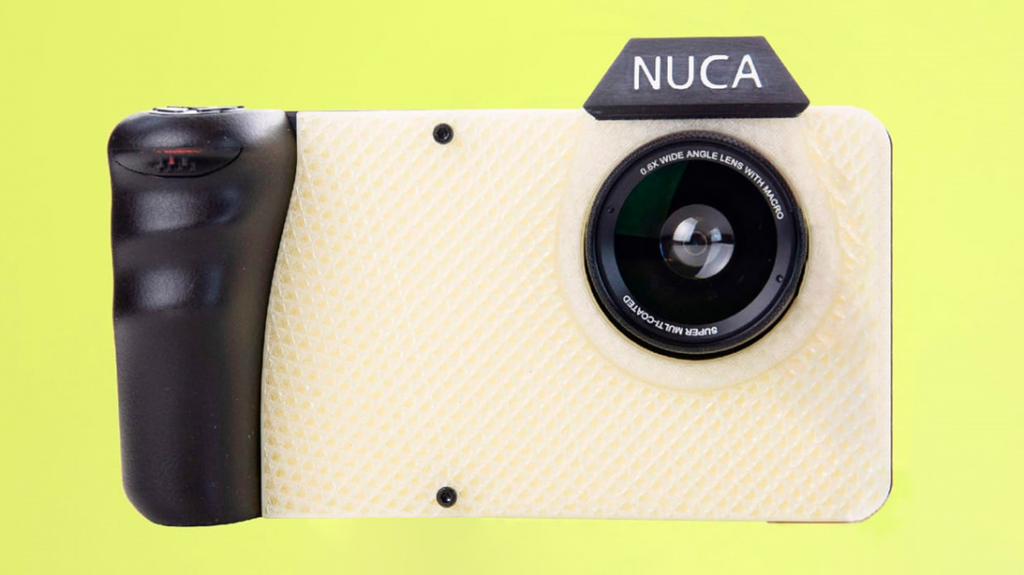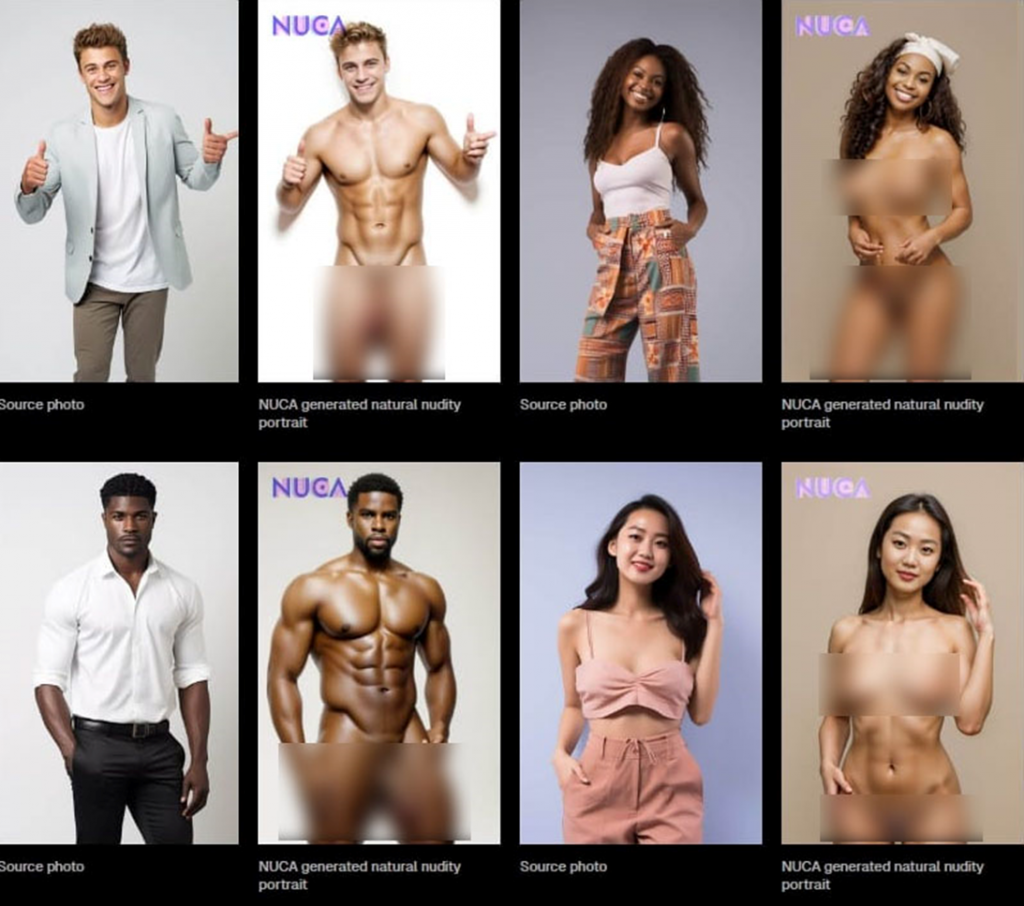Father
Professional
- Messages
- 2,602
- Reaction score
- 837
- Points
- 113
The provocative project clearly demonstrates the frightening possibilities of modern technologies.
In a recent controversial experiment in the field of contemporary art, artist Mathias Wef and designer Benedict Gross presented the NUCA camera to the world — a prototype that uses artificial intelligence to create nude images of any photographed person in just 10 seconds.
This project, positioned as a speculative study and art object, aims to ask questions about the future of generative AI and its impact on reproducing human body images.

The NUCA camera, made using 3D printing, is equipped with a 37 mm wide-angle lens. The essence of its work is to send the captured photo to a server, where a specialized classifier developed by Wef and Gross analyzes the image, describing the person on it in text format: gender, age, race, pose in the frame, and so on are determined.
The resulting text serves as the basis for a query that is passed to the Stable Diffusion AI-based image generator, which creates a nude body that matches the original characteristics. Then, using the Quick Face replacement tool, the photographed face is transferred from the original photo to the generated image.

The authors of the project emphasize that all the technologies they use have long been available to the general public and do not represent something unique or inaccessible. They also note that the current process can be optimized in the future, reducing the time required to create an image by at least half.
It is important to note that the results of NUCA's work may vary in quality, however, as practice and images on the project website show, they often look quite convincing. This raises questions about the implications of such technologies and their impact on the perception of privacy and intimacy in the digital age.
The creators of the project used high-quality promotional materials and videos on their website, creating them as a satire on advertising consumer gadgets. They emphasize that they do not plan to sell the camera as a finished product, but rather seek to provoke discussion and reflection about the problems associated with obscene images created using AI.
The variety of reactions to the project speaks for itself: from shock and rejection to curiosity and amusement. This diversity confirms the importance of discussing how AI technologies can be used and what ethical issues they raise, especially in the context of consent and privacy. The authors of the project plan to show their camera at the Uncanny art exhibition in Berlin.
Just a few days ago, we already talked about the public response that the results of generative AI work often cause in the framework of creating adult content using the faces of real people without their consent. Such things often lead to scandals and even harassment by the police.
It is important to remember that creating and distributing such materials without the consent of the persons depicted on them is absolutely unacceptable and illegal.
In a recent controversial experiment in the field of contemporary art, artist Mathias Wef and designer Benedict Gross presented the NUCA camera to the world — a prototype that uses artificial intelligence to create nude images of any photographed person in just 10 seconds.
This project, positioned as a speculative study and art object, aims to ask questions about the future of generative AI and its impact on reproducing human body images.

The NUCA camera, made using 3D printing, is equipped with a 37 mm wide-angle lens. The essence of its work is to send the captured photo to a server, where a specialized classifier developed by Wef and Gross analyzes the image, describing the person on it in text format: gender, age, race, pose in the frame, and so on are determined.
The resulting text serves as the basis for a query that is passed to the Stable Diffusion AI-based image generator, which creates a nude body that matches the original characteristics. Then, using the Quick Face replacement tool, the photographed face is transferred from the original photo to the generated image.

The authors of the project emphasize that all the technologies they use have long been available to the general public and do not represent something unique or inaccessible. They also note that the current process can be optimized in the future, reducing the time required to create an image by at least half.
It is important to note that the results of NUCA's work may vary in quality, however, as practice and images on the project website show, they often look quite convincing. This raises questions about the implications of such technologies and their impact on the perception of privacy and intimacy in the digital age.
The creators of the project used high-quality promotional materials and videos on their website, creating them as a satire on advertising consumer gadgets. They emphasize that they do not plan to sell the camera as a finished product, but rather seek to provoke discussion and reflection about the problems associated with obscene images created using AI.
The variety of reactions to the project speaks for itself: from shock and rejection to curiosity and amusement. This diversity confirms the importance of discussing how AI technologies can be used and what ethical issues they raise, especially in the context of consent and privacy. The authors of the project plan to show their camera at the Uncanny art exhibition in Berlin.
Just a few days ago, we already talked about the public response that the results of generative AI work often cause in the framework of creating adult content using the faces of real people without their consent. Such things often lead to scandals and even harassment by the police.
It is important to remember that creating and distributing such materials without the consent of the persons depicted on them is absolutely unacceptable and illegal.

